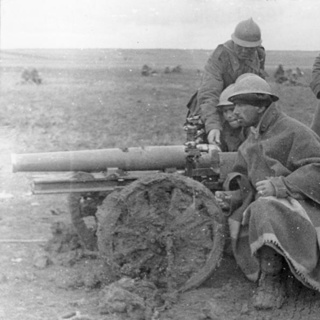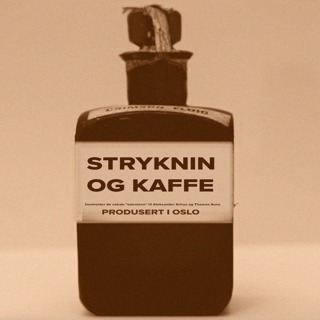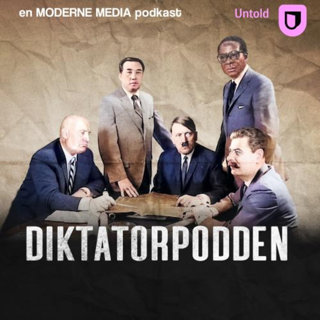
113. Russell, Palmerston and tit-for-tat politics
We saw last week that the Russell government stood back from the Great Irish Famine to the point of practically criminal negligence. But what was it doing in the meantime? Well, it turns out that it wasn’t achieving much. It was a minority government, only able to hang on to office because of the divisions in the Conservative Party. Indeed, the most dramatic events mostly surrounded the figure of the Foreign Secretary, Lord Palmerston. His most remarkable action as his behaviour over the Don Pacifico affair, a striking example of the use of gunboat diplomacy. It was also another instance of the maverick behaviour which ultimately led to his fall. And, thanks to his tit-for-tat with John Russell, that was quickly followed by the fall of the whole government. It had stayed in office thanks to the divisions in the main Opposition party, and it was brought down by the divisions in its own. Illustration: Pen and ink portrait of Lord Palmerston, by Harry Furniss National Portrait Gallery 6251(46) Music: Bach Partita #2c by J Bu licensed under an Attribution-NonCommercial-No Derivatives (aka Music Sharing) 3.0 International License
23 Okt 202214min

112. Irish hunger
A million dead. Over a million emigrants. A population that has never recovered to its level before the disaster. The Irish starved while the British government stood back and decided to let the market solve the problem for it. Or even to allow what it saw as God’s will to work itself out. The legacy is a deep well of bitterness against Britain. With the descendants of the emigrants in the United States outnumbering the Irish population by nearly six times, it’s not surprising that the bitterness is particularly strong there. Which, while it doesn’t make my experience of living through a terrorist campaign any pleasanter, does perhaps at least explain why it was funded from across the Atlantic. Illustration: The Irish Famine: scene at the gate of the work-house. Public Domain Music: Bach Partita #2c by J Bu licensed under an Attribution-NonCommercial-No Derivatives (aka Music Sharing) 3.0 International License
16 Okt 202214min

111. Peel, the Corn Laws and Ireland
Peel’s name is tightly bound up with the issue of Corn Law Repeal, the striking achievement of his only full period in office (the hundred days he had before didn't really count). The repeal was, however, double-edged: a major success but also a (politically) fatal self-inflicted wound, obtained only at the price of splitting his own party and having to accept support from the Whigs, or Liberals as they were increasingly known. Although it was the Corn Laws that left him vulnerable to being brought down, the final blow came from another quarter, that other cauldron of suffering, and of trouble for British governments at the time, Ireland. When the Liberals withdrew their support over a new Irish Coercion Bill, Peel realised he'd reached the end of the road and resigned. Although they were in Opposition, the Liberals had become the masters of the government's destiny. It was time for another major realignment in British politics. Illustration: A meeting of the Anti-Corn Law League in Exeter Hall, London. Unknown author. Public Domain. Music: Bach Partita #2c by J Bu licensed under an Attribution-NonCommercial-No Derivatives (aka Music Sharing) 3.0 International License
9 Okt 202214min

110. The choice: wielding a big stick or speaking softly
As Melbourne left the scene, so men like John Russell could step into his place. Russell had indeed been adding to his reputation as a liberal, just as his Whig Party was increasingly being transformed into the Liberal Party. A fellow liberal, but increasingly a rival, was Lord Palmerston. He was highly critical of his successor as Foreign Secretary, Lord Aberdeen, but the behaviour Palmerston denounced as weak seems more a case of using soft speech, rather than simply wielding a big stick. How he handled tensions with America rather supports that viewpoint. By way of contrast, Aberdeen did sometimes resort to the stick, in particular in two conflicts that Palmerston had got going, in China and in Afghanistan, and in the first it was ugly, while in the second it was disastrous. Illustration: Elizabeth Butler Remnants of an army, showing William Brydon reaching the British fort at Jalalabad, after the retreat from Kabul. Music: Bach Partita #2c by J Bu licensed under an Attribution-NonCommercial-No Derivatives (aka Music Sharing) 3.0 International License
2 Okt 202214min

109. Curious Triangle: Melbourne, Victoria and Peel
The curious relationship continues between Queen Victoria and her first Prime Minister, Viscount Melbourne. It is, however, perhaps less easy than in the past, as the young queen becomes more wilful, more determined on getting her way. One of the things the queen’s particularly determined about is not having that “cold unfeeling disagreeable man” Peel as Prime Minister. However, when Melbourne decides it’s time to resign, the first choice to replace him, the Duke of Wellington, says it has to be Peel. She brings herself to see the man she dislikes so much, and manages, on this occasion, to put him off. So she forces her favourite, Melbourne, ageing and increasingly unwell, back into office. She can’t pull it off a second time, though. On the back of a good election win, Peel finally forms a government with a solid majority behind him. He brings into office many of the old crowd – Aberdeen, Stanley, the dynamic and thrusting Gladstone. But one man he leaves out: the new young MP for Maidstone, Benjamin Disraeli. That may turn out not to have been his wisest decision. Illustration: A dramatic encounter between the Duke of Wellington, dressed in armour bearing a large sword, and Queen Victoria with Lord Melbourne kneeling in supplication and two ladies in waiting. Coloured lithograph by H.B. (John Doyle), 1840. Music: Bach Partita #2c by J Bu licensed under an Attribution-NonCommercial-No Derivatives (aka Music Sharing) 3.0 International License
25 Sep 202214min

108. Palmerston, sometimes a liberal, always an activist
After the last few episodes and their focus on domestic issues, you could be forgiven for thinking that the Grey and Melbourne governments had practically no foreign policy. Nothing could be further from the truth. As a global power with a huge empire, Britain was actively pursuing foreign policy objectives. And in Lord Palmerston, it had a foreign minister far more activist than, Melbourne, to guide it. In some instances that went well. But, as today, Afghanistan would prove a problem. Then when Britain used military force against China to maintain its right to push narcotics into that sad and declining empire, you might even find that it had behaved shamefully. Illustration: Henry John Temple, 3rd Viscount Palmerston in 1844-45, by John Partridge National Portrait Gallery 1025 Music: Bach Partita #2c by J Bu licensed under an Attribution-NonCommercial-No Derivatives (aka Music Sharing) 3.0 International License
18 Sep 202214min

107. The tale of Melbourne's return, and of two remarkable women
After Peel’s 100-day stint in office, Melbourne was back. He took advantage of his return to rid himself of some figures he disliked in his government, though he had to keep Palmerston in place, despite his dislike of all activism. That dislike was based on his pursuit of an easy life, so it’s not surprising that though he had a few achievements, there weren’t many and they weren’t spectacular. Much more important were the women who marked his second administration. The first was Caroline Norton, whose husband sued him for adultery. More important still, was the new young Queen who came to the throne in 1837 when her uncle William IV died. Victoria had arrived. Melbourne would be her mentor. Illustration: Queen Victoria, replica by Sir George Hayter, 1863, based on a work of 1838 National Portrait Gallery 1250 Music: Bach Partita #2c by J Bu licensed under an Attribution-NonCommercial-No Derivatives (aka Music Sharing) 3.0 International License
11 Sep 202214min

106. Melbourne's first go, Peel's hundred days
It was time for Melbourne. But not a long time, as the king decided to try the old royal trick of getting rid of a prime Minister, the last time a monarch attempted that. So, like Napoleon, Peel got a hundred days. What’s more this episode takes a look at the curious private life of Melbourne, using the word 'curious' in a broad sense, extending as far as an Epstein-like appetite. In addition, we’ll talk about the search for Peel in Rome, in an expedition executed expeditiously, not that Peel showed any gratitude for it, though it ended with him back in London as Prime Minister. Illustration: William Lamb, Second Viscount Melbourne, by Sir Edwin Landseer, at the time he was Prime Minister in 1836. National Portrait Gallery 3050. Music: Bach Partita #2c by J Bu licensed under an Attribution-NonCommercial-No Derivatives (aka Music Sharing) 3.0 International License
4 Sep 202214min





















